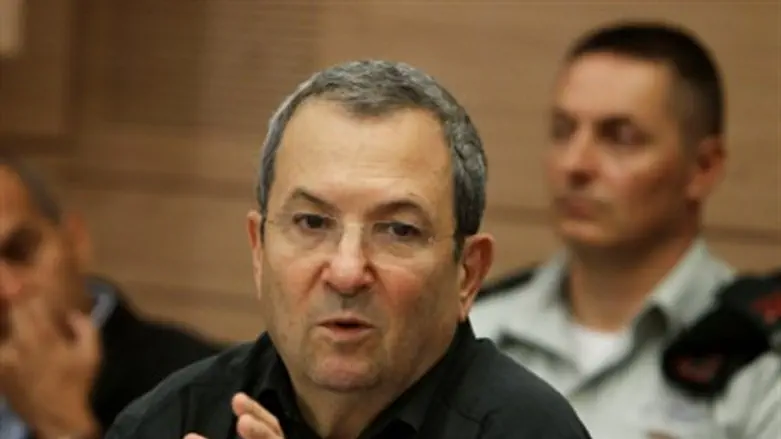
When Israel says that all options are on the table regarding stopping a nuclear Iran, it means what it says, Defense Minister Ehud Barak said at the AIPAC 2013 conference on Sunday night.
“It is an indescribable feeling to be surrounded by so many friends in the capital of the world’s greatest democracy,” Barak told the audience at the beginning of his speech.
“I have six humble words for all of you: Thank you, thank you, thank you. I would like to express my personal appreciation to President Barack Obama and [outgoing] Defense Secretary Panetta for their resolute backing of Israel. History will surely record your immeasurable contribution to the strength of Israel and the maintenance of the truly special relationship between our two peoples. I wish incoming Secretary Hagel all the best in his new role.”
Barak said that Israel’s “rock solid relationship with the U.S.”, alongside the devotion of IDF soldiers, is what ensures Israel’s strong defense capabilities.
“The Iron Dome recently intercepted over incoming terrorists 400 rockets, like hitting a bullet with another bullet,” he said. “Just last week, we conducted an extremely successful test of the Arrow 3. That’s the future of our missile defense.”
The State of Israel would not be what it is without the U.S. - its people, its leaders, its Congress and the Jewish community, said Barak.
“We live in a tough neighborhood where there’s no second chance for those who cannot defend themselves. Israel is the strongest country and the only genuinely open democracy” in the region, he said, going on to mention the ongoing turmoil in the region, specifically in Egypt and Syria.
“Many believe that the root cause for all the problems in the Middle East is our inability to solve the conflict with the Palestinians, but I say that’s not true,” said Barak. “Recent developments in the Middle East have been beyond our control and independent of our deeds. Even if a peace agreement had been signed and sealed a long time ago, the Muslim Brotherhood would still have come to power in Egypt, Syria would still be in a bloody civil war and Iran would still be pursuing nuclear capabilities.”
Barak stressed that Iran’s pursuit of nuclear capabilities is “the greatest challenge facing Israel, the region and the world today,” adding that if Iran goes nuclear, Saudi Arabia, Turkey, Egypt and even local terrorist groups may follow suit.
“Diplomatic efforts are unprecedented and sanctions are hurting, but frankly, while exhausting all diplomatic means is understandable, I do not believe it will lead to the ayatollahs giving up their nuclear aspirations. Therefore, all options must remain on the table,” he said.
Barak said, “We expect all those who say it to mean it. Ladies and gentlemen, we mean it. And let me repeat it: We mean it.”
Referring to the peace process with the Palestinian Authority, Barak said, “I tried hard as Prime Minister, together with President Clinton, so I know from personal experience that the Palestinians are not easy partners for peace. Prime Minister Netanyahu has taken courageous steps to renew the process, including an unprecedented settlement freeze, but there still has been no proper response from the Palestinian side. They clearly bear most of the responsibility for past failures.”
Barak conceded that an agreement with the PA is not feasible today, but that sincere efforts should still be made to achieve an interim agreement that will guarantee Israel’s security.
However, he said, if even an interim agreement isn’t possible, Israel should make unilateral steps to stop the formation of a bi-national state.
“It involves demarcating a line, within the State of Israel, within which we will have the ‘settlement blocs’ and a solid Jewish majority,” said Barak, adding that such moves should include a strong and long-term Israeli military presence along the Jordan River.
“Rest assured, our security should not and will not be compromised under any of these alternatives,” he stressed. “Tough decisions must be taken but it is possible, and as our sages said, ‘If not now, when?’”
